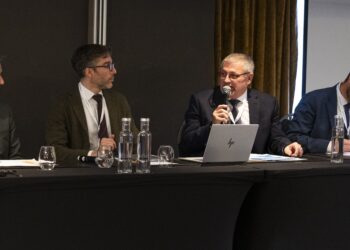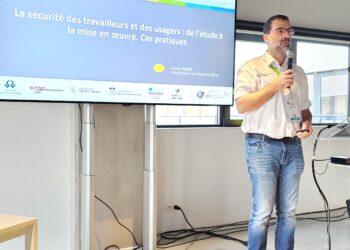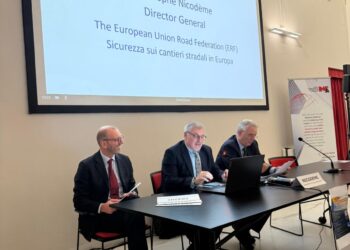13 June 2019 | Brussels, Belgium
On 3rd June, the ERF successfully organised the second edition of the ERF Lab.
The ERF Lab is intended to be a regular event giving the possibility to representatives from the ecosystem around roads to present their visions on future mobility trends and possible impacts on the road infrastructure sector.
This 2nd edition brought together experts from different range of sectors and backgrounds and gave the floor to interesting speakers to discuss about the impact of new mobility trends on the road infrastructure and its equipment.
Further to a brief presentation of a benchmark survey on new mobility trends, that the ERF has recently initiated, the following presentations gave a global overview of the issues that the road infrastructure sector will need to take into account in order to keep up with new trends in electric mobility. Mr Carsten Horn-Hanssen (Norwegian Mission to the EU) presented the Norwegian experience for incentivizing electric mobility, while Mr Robert Evans (Cenex) talked about the latest trends in charging points. Mr Jorgo Chatzimarkakis (Hydrogen Europe) provided participants with a different perspective, the one of alternative fuels. His presentation focused on the changes and developments in demand when it comes to alternative-fuels based road transport.
The second part of the ERF Lab focused on technical developments in electro-mobility related to road infrastructure. Mr Patrick Duprat (Alstom) presented how complete electric road systems can function in real traffic conditions and Mr Patrick Akerman (Siemens) presented the eHighway initiative, which aims at electrification of heavy trucking corridors.
The last presentation gave Mr Steve Phillips (CEDR) the opportunity to present the point of view of road authorities, indicating expectations and challenges in these changing times.
The presentations were followed by an interactive panel discussion together with the audience.
ERF DG, Christophe Nicodème, concluded saying that a regular event such as ERF Lab highlights the necessity of more integrated and reinforced cooperation between all stakeholders of road mobility, with the industry, the service providers, decision makers and road authorities to work as ecosystems for bringing as many solutions as possible for reducing the emission level of road transport and provide smart and innovative mobility to all road users and citizens.
-
Safer, Smarter Roads Discussed at the 25th Belgian Road Congress
October 10, 2025 -
ERF calls for Smarter, Safer Road Work Zones at Bologna Forum
October 9, 2025




